The art of acceptance
My solo trip to the island of Flores turned out to teach me a lot about acceptance. Read on and see what happened to me on its last leg and what lesson it gave me.
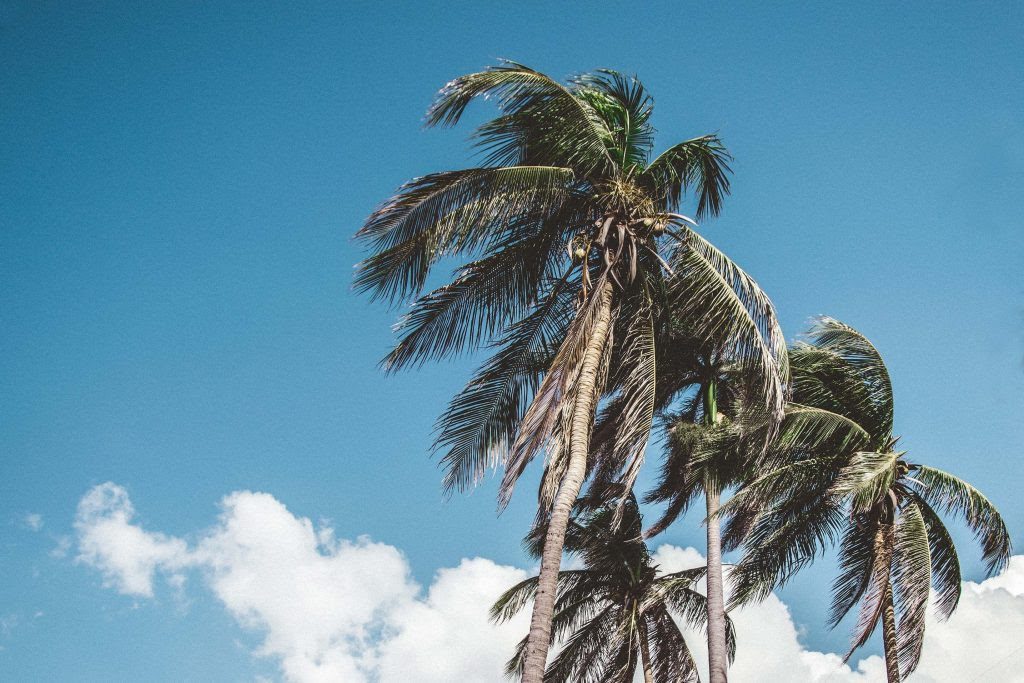
My last goal during the lonely backpacking trail around Flores was to spend the night in the remote mountain village of Wae Rebo.
This place seemed to be so unique that I could resist visiting it. I have never seen a village built that way, isolated far from civilisation, cut off from the rest of the world.
First, I read all the accounts and tips from other travelers that I could find on the internet. Then, I went to the city of Ruteng, from which I was supposed to take a 3-hour drive by car on the roads, which due to continuous heavy rainfalls were honeycombed with deep potholes. This road led to the village of Dintor, from where I was to take another 3 hours, but this time, of trekking uphill). In Dintor, there was one of two homestays that travellers could stop by on their way to Wae Rebo.
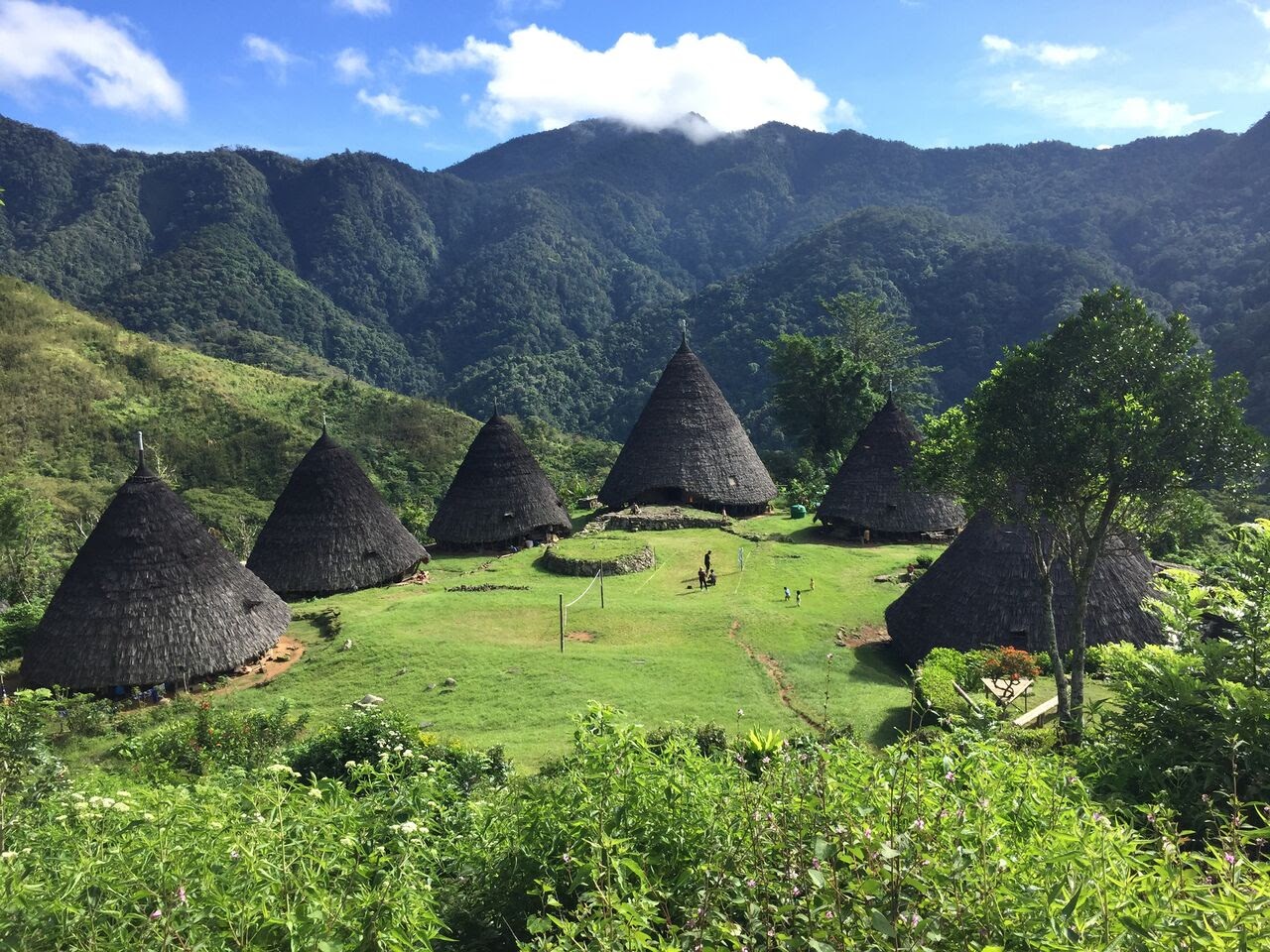
So here I was in Ruteng, looking for a driver who would take me to Dintor. They bid 800,000 rupees for a one-way drive. It seemed like a fair price to me. The drivers justified it with the hopeless condition of the road. As I wanted to do some research, I walked around the town and asked more drivers about the price.
At some point, when I felt the first drops of afternoon rain (which will play quite an important role in this story) on my cheeks, an English-speaking Indonesian drove up to me on a knackered scooter. I immediately recognized him; a few minutes earlier, he offered me a lift to Dintor as a passenger on his scooter (3 hours on a scooter? not a chance!). Now, he came up to me with a different proposal. He eagerly introduced me to the passenger, who came with him. Then he explained to me that he was to go back to Dintor in an hour or so because he lives there, and that he could take me. This ride would cost me 300,000 rupees. I agreed without much hesitation.
When I saw his vehicle, which was supposed to get us to the village, I realized that I didn’t make such a good deal, as I thought it was at first. My idea of a large and comfortable car was torn to pieces by the reality of … this van:
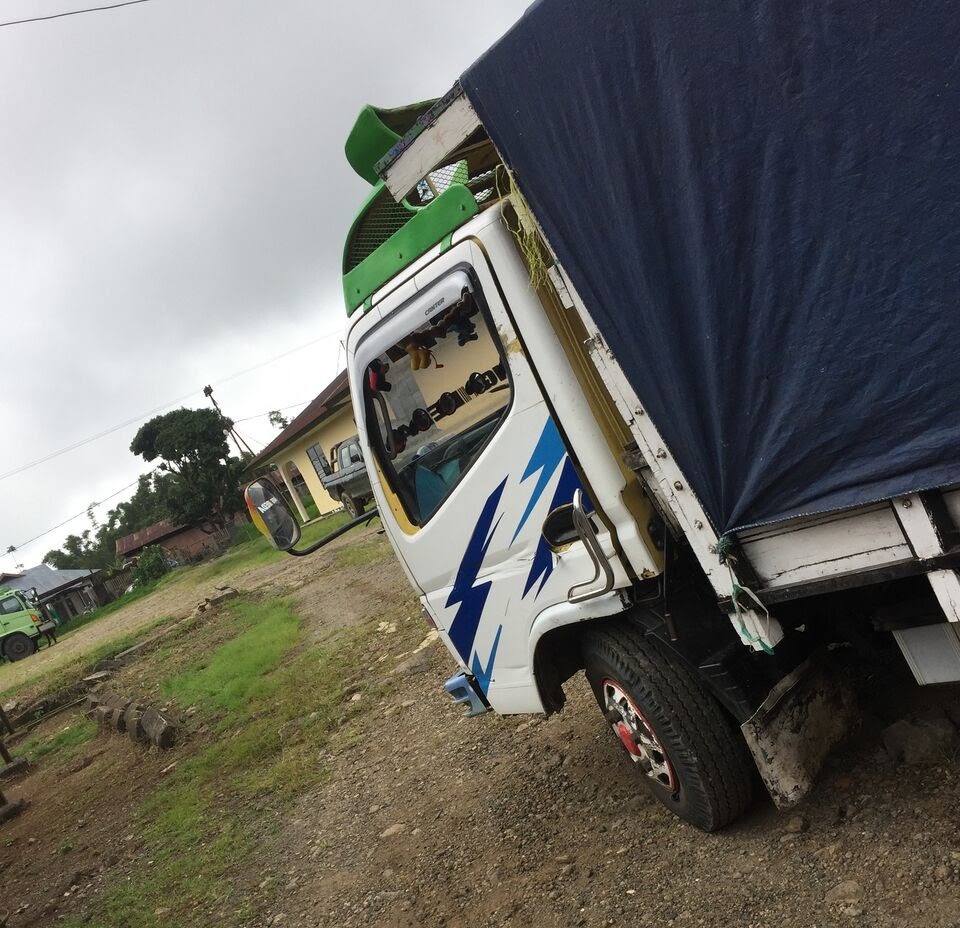
I thought to myself: What the hell! I am in Asia, after all. I will have stories to tell back home. The whole situation was brightened up by the fact that the van was to take food supplies to Wae Rebo, my trip destination. I thought that taking part in this local practice would be quite an experience.
We started up the engine and off we went. The driver did not speak a word - literally a word - in English. After an unsuccessful attempt to make small talk, I opened the window, put on my headphones and turned on my favorite music. I looked forward to the adventure that awaited me. The rain was getting heavier, but the drops falling on me didn't bother me at all, as the views over green mountains, rice fields and surrounding villages fully compensated it.
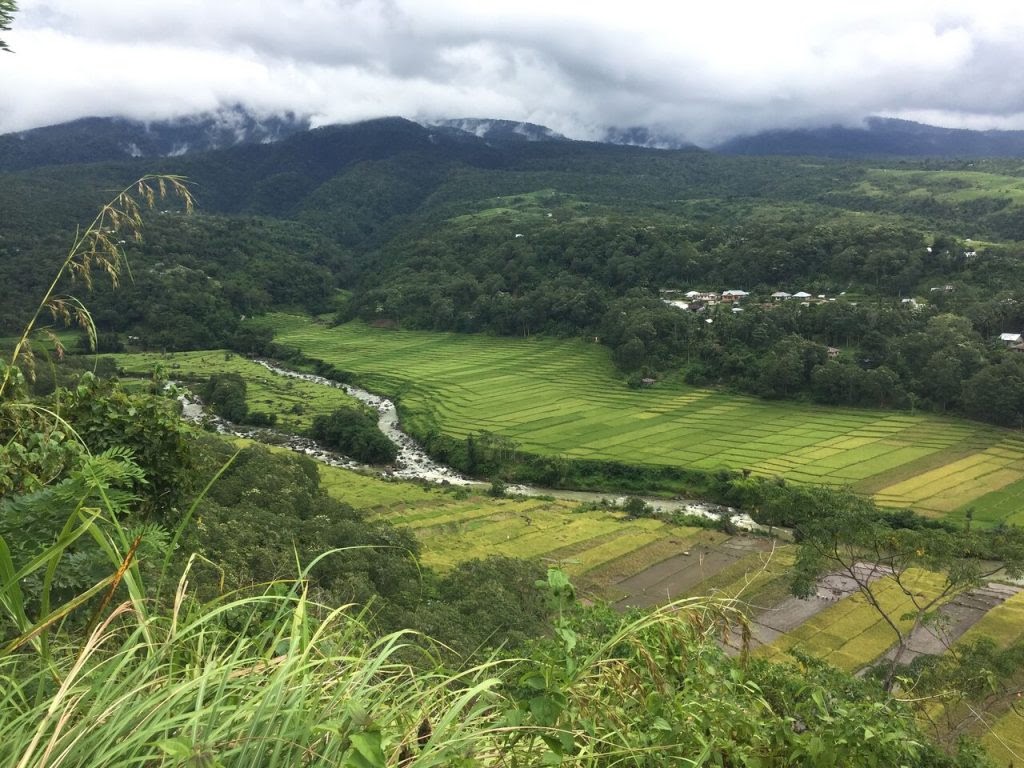
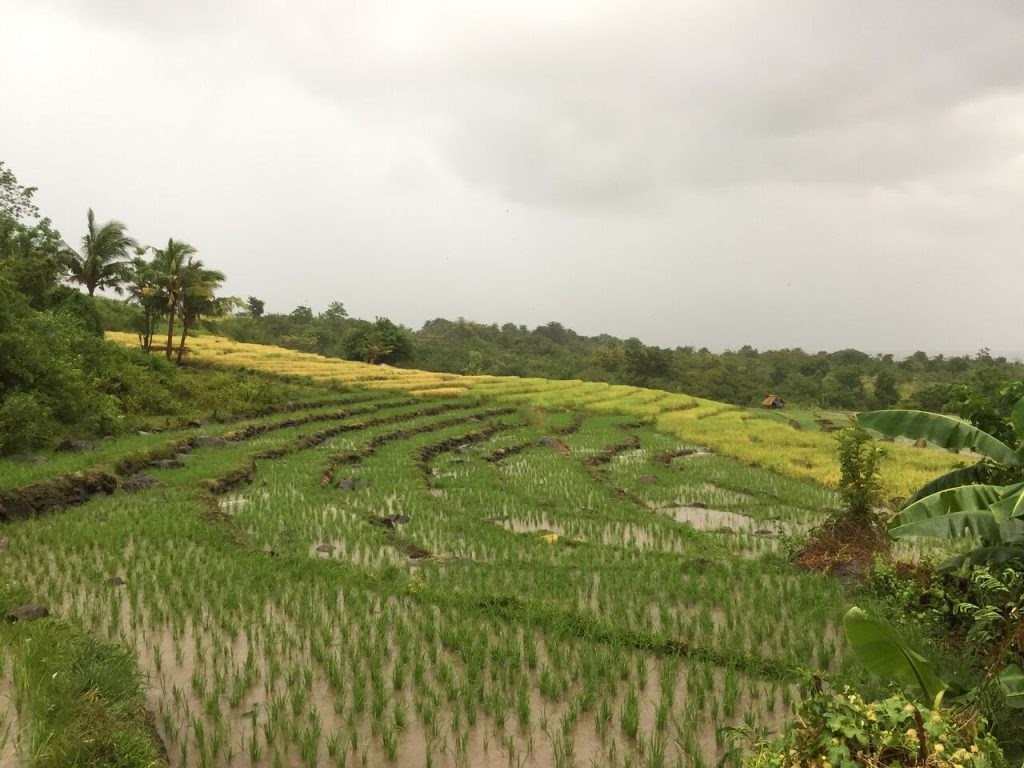
The drivers in Ruteng were right; the road was in terrible condition. Big potholes made me jump on my seat the whole time even though I tried to hold to whatever I could. I was getting really tired of it, but I thought that the sights that await me there and the experience of becoming part of such a unique local community are worth all that hassle. So I bravely powered through the discomfort and the exhaustion.
As after over 2-hour drive, we started to see the village of Dintor on the horizon, the truck suddenly stopped. There were two other large vans ahead of us. I looked around only to see that we were in the middle of a rainstorm and a bananas forest (wow, that sounds exotic!). It turned out that the rain was so heavy that the surrounding river flooded the whole road (and still kept flooding it at that moment). As if that wasn't enough, there was a tree blocking the road.
The situation didn’t look good. Of course, no one was able to tell me what the chances are of getting to Dintor today. But since the drivers didn’t turn back, they must have seen some hope for that. A dozen Indonesians gathered around the trucks and talked lively, every few moments bursting with laughter. They didn't look worried at all. And if they didn’t, why should I?
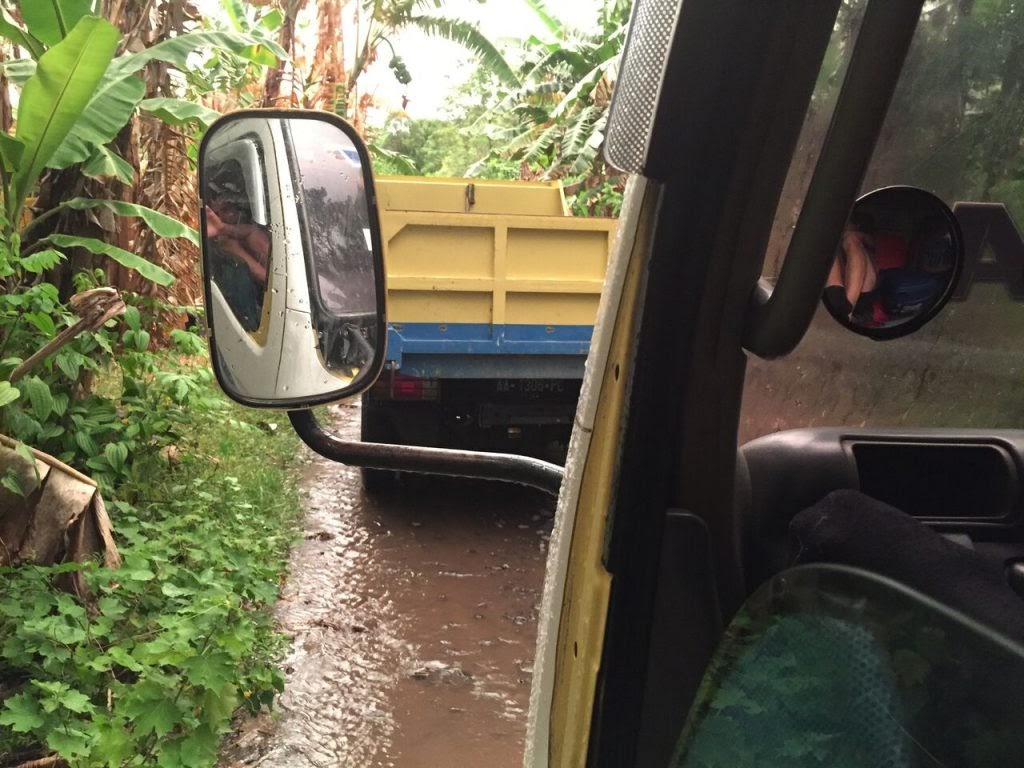
Unfortunately, my optimism was gradually being replaced by a creeping feeling of uncertainty. After 30 minutes of standing in the water, we had to move back a few meters, so that the cars in front of us would not get flooded. During the next hour, we would have to back the van three more times like this. Time was ticking away and, at some point, it started to get dark. So I decided to try one more time to communicate with my driver. From our short exchange of gestures, I got the message: "You and I are sleeping in the truck tonight".
At first I felt a pinch of disappointment. How come? How the hell am I supposed to spend the whole night in the cramped cabin of this mired truck? I couldn’t believe that I wouldn’t get to Dintor that night and leave at dawn for Wae Rebo. I started to doubt whether I would get there at all. Images of what the things were supposed to be like (and what they probably wouldn’t) began to go through my head. I visualized myself, reaching Dintor on time, getting a good night sleep and setting off for Wae Rebo at dawn. I saw myself enjoying conversations with the people of this village. The more such ideas came to my head, the more disappointed and powerless I felt.
At one point, however, I took a deep breath and said to myself with a calm voice: "Firstly, not everything is lost yet. If the situation were hopeless, we would probably have turned back a long time ago. Secondly, maybe the driver had something different in mind. Maybe he thought that I had asked him if I could take a nap. Finally, even if I don't get to see Wae Rebo, well.. I just don't. The world can take it. I can take it. This is how traveling with no itinerary planned works - you never know what is going to happen. Deal with it. Maybe it wasn’t meant to be right now."
The part of me, which said these words and decided to take matters into their own hands, did a really good job. I calmed down and relaxed almost immediately. I decided to wait with curiosity for the events, accepting everything that the world has to offer.
To lighten up the dark mood and kill some time, I pulled an e-book reader from my backpack and started reading the book I had bought the day before. At that time, I didn't know that I would read about something that perfectly corresponds to the situation I found myself in.
Man’s Search for Meaning is a book by Viktor Frankl chronicling his experiences as a prisoner in Nazi concentration camps. Frankl presents a unique perspective at the process in the psyche of a prisoner who finds himself in such a hopeless position
At some point, I came across a line, which had caught my eye while browsing the internet a few months earlier. I recognized these words immediately. Just like when I read them for the first time, they struck me with simplicity and truthfulness:
“We who lived in concentration camps can remember the men who walked through the huts comforting others, giving away their last piece of bread. They may have been few in number, but they offer sufficient proof that everything can be taken from a man but one thing: the last of the human freedoms -- to choose one's attitude in any given set of circumstances, to choose one's own way.” - Victor Frankl
I took my eyes off the book, looked into the dark banana forest and dove into reflection. I realized that in the face of a rainstorm, a raging river, a tree blocking our way and everything that "should" happen but does not, I did exactly what Frankl wrote about. I made a conscious choice about the way I would respond to these circumstances. Instead of falling into the old habit of sticking to my expectations, I gave up and accepted that it is what it is.
I immediately remembered two similar situations that took place a few days earlier in the village of Moni, beautifully situated at the foot of the Kelimutu volcano. This was my first stop on the island of Flores. After only a few hours of sleep, I got up at 4 in the morning to see the sunrise from the top of the volcano. The view is said to be extraordinary - all three craters are filled with water, which changes color depending on its chemical composition and season.
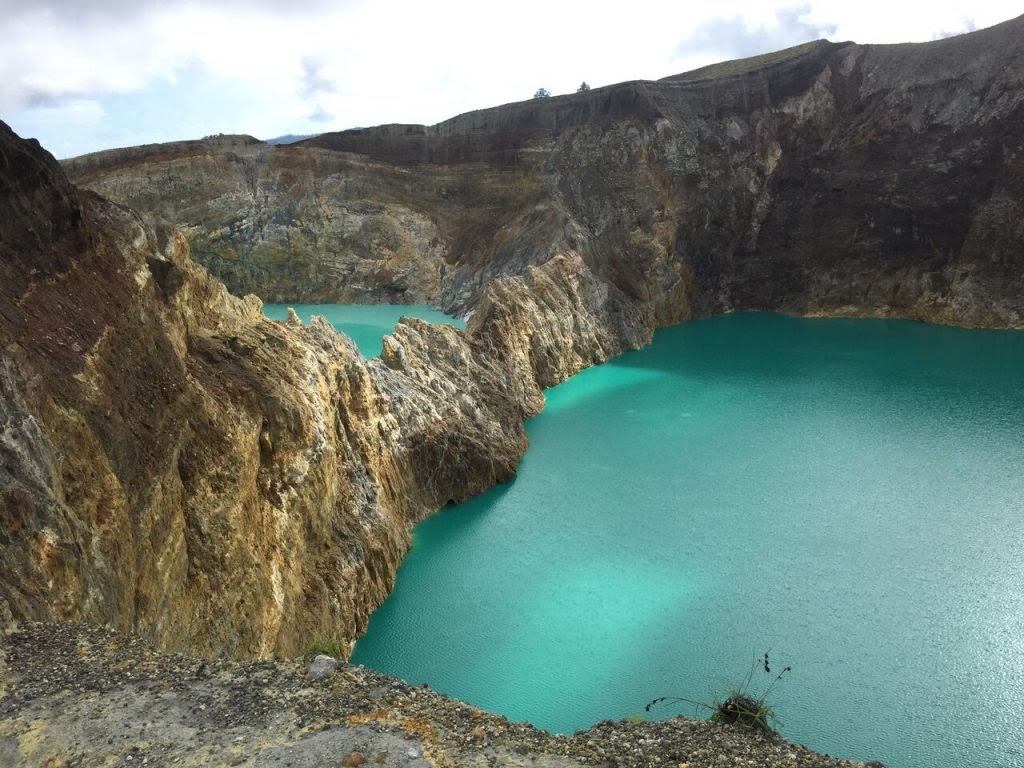
Unfortunately, the brother of the owner of the place where I stayed over did not show up on the appointed time (he was supposed to give me a ride with a scooter to starting point of the trekking path to the volcano,an hour away from Moni). There I was, fully dressed and equipped, standing in the middle of the road in total darkness. After some time, I gave up waiting for him and went back to sleep. The temptation to get pissed at these circumstances was enormous. But after I took a deep breath, I found the ability to reconcile myself with this situation and the initial disappointment turned into acceptance and the serene thought that I could still climb the volcano tomorrow.
To my surprise, an hour later I was woken up by a knock on the door. It turned out that my driver got mixed up about the time we were supposed to meet. I thanked him and decided to rent a scooter for a day in the morning and get myself there on my own.
And so I did. The next morning I got up again at 4. After an hour of night uphill driving on a dark path, I got to the place where I left my scooter and climbed to the top. It wasn’t that far. I think I got there before 6. As it turned out, I could have slept longer. When I got to the top of the volcano, I found myself surrounded by... clouds. Not a ray of sunrise. Not a chance to see anything. I decided to wait, hoping that the weather conditions would change. Again, I had to make a choice: either to fall into the arising frustration or accept the reality with everything it brings.
Immersed into the memories of the volcano, for a few moments I forgot about the situation I was currently in. The clock was ticking, the heavy rain falling, and I was still sitting in that cramped truck, surrounded by the pungent smoke from my driver's cheap cigarettes.
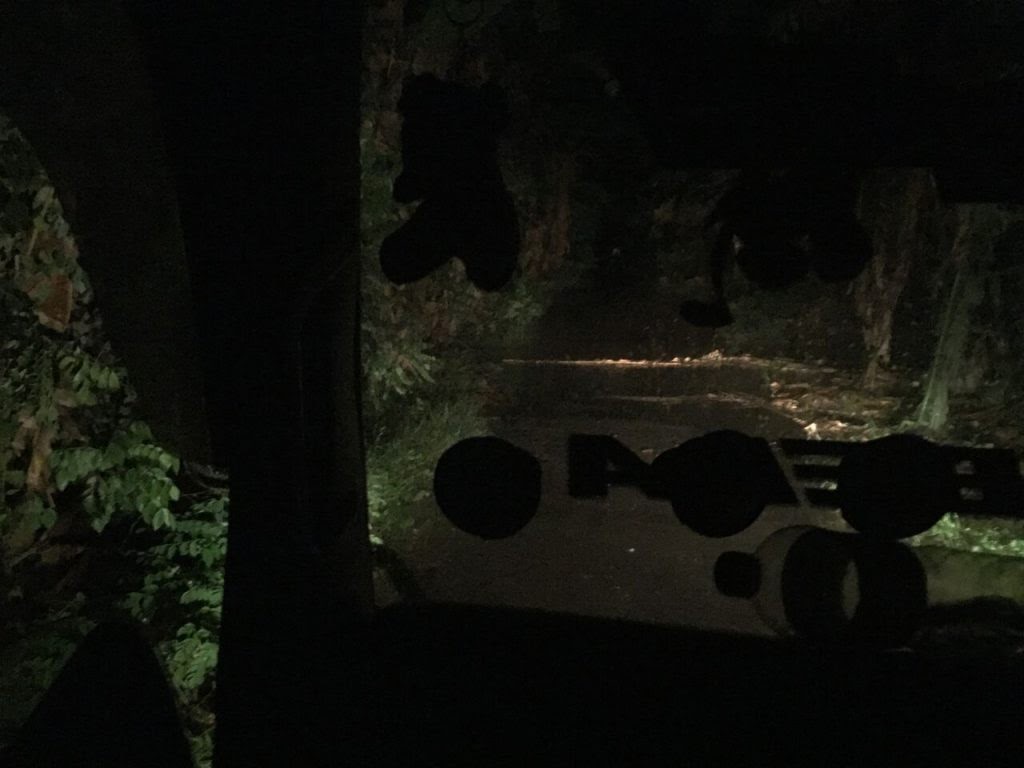
As nothing was happening, except for other drivers passing by and chatting, my thoughts went again to Victor Frankl's quote.
Some people believe that their reactions are merely an immediate result of what happens to them. It is the perspective of a victim of circumstances, which takes off the responsibility for their emotional states. It means choosing an easy and effortless way of living, but it comes with a price. By getting rid of responsibility, we also deprive ourselves of self-control. How can we influence how we feel when our behavior is entirely driven by external factors?
It turns out that in every situation (and I mean it!), there is a space between the stimulus and the reaction to make a decision about how you want to handle this situation. This is your space for choice. At the beginning, it is very short, because the automatic reactions we fall into are stronger than we think. However, the more often we focus on this space and try to stay in it, the longer it becomes. Finally, it lasts long enough for us to make a conscious choice of a different response than the habitual one.
Of course, there are ways to expand this space and make it more accessible to us. Regular meditation is one of them. Mindfulness directed on the automatic reactions during the day also helps a lot.
I consider my reaction to the blocked road and the darkness surrounding us in the banana forest as my personal success. Just a few months earlier, I would struggle with the frustration, wishing I had been in a different place than I was. I would endlessly imagine the "right" course of events, failing to accept that reality plays its tricks on us. This time, however, I focused on my capability of choice, and decided to approach the circumstances differently than usual.
Imagining how "things should be” is a tricky mechanism of our mind, which is supposed to give us motivation to action, so that we can change the current state of affairs and bring it closer to the envisioned version of reality. This “approach” is very helpful in situations where we have some control over the situation. However, where we are in circumstances beyond our control, the tendency to deny reality means losing valuable energy for internal struggle, in which we are doomed to failure from the very beginning.
I can’t help quoting one of my favorite sentences here. It is the wisdom along I have been trying to live my life for a long time. I don't focus on the religious meaning of these words - I think they are priceless no matter what we believe in. This quote is credited to various people, hence leave it anonymous.
“God, grant me the Serenity to accept the things I cannot change, Courage to change the things I can, and Wisdom to know the difference.”
Simple and beautiful, don’t you think?
All right, but how do we know when we can change something and when we can’t? How to become able to distinguish one situation from the other?
When you find yourself in a difficult situation and see the conflict between your willingness to fight and act and your desire to accept what is, think about what you can do to change the situation. What actions can you take? How can you influence the course of events? What is the probability that your actions will change the current state of things? The answers to these questions will guide you what to do.
Be careful with situations where your actions would mean influencing other people's decisions, attitudes and feelings. The only thing to do then is to talk, without pressure and specific expectations, and express your feelings and needs. You definitely shouldn’t aim at changing another person’s attitude or behaviour. Respect their freedom to be a distinct, independent individual and let them be who they are. Anyway, manipulating (even hidden, subtle) others often brings the opposite effect to what was expected. People who feel pressured are likely to resist (consciously or not) in order to manifest their independence.
Obviously, it is not that we need acceptance only when we have no influence on external circumstances or events. Even when our actions can actually change our situation, it is also wise to choose acceptance. Why is it so? Because to deal with a challenge or a tough situation, you first need to have inner peace, mindfulness, creativity and willingness to act. Access to all these resources becomes very limited when you are focused on denying reality, imagining alternative scenarios and fighting feelings of disappointment, frustration or anger. Acceptance does not mean passivity. It means, however, that you accept the fact that something has already happened. From the level of acceptance, your actions can be much more effective.
Giving up fantasizing about how you think the situation should look like brings a kind of release and lets you get out of your head. This is the moment when you open yourself to everything that life offers you and begin to “befriend” reality.
The more I thought about it sitting in this cramped truck, the deeper I understood the meaning of this approach to life and the more I opened myself to what could still happen. I even became a bit excited, just as if I get curious about the ending of a good film or book. Now I know that I can learn to accept all surprises that life brings, without fear but with an open heart instead.
Backpacking around the island of Flores allowed me to deepen my understanding of this important lesson of acceptance and dealing with the unexpected course of events. Interestingly, it is often the case that as soon as we stop fighting what we can't change, the world begins to favour us. Sitting on the top of the volcano, I wondered whether I should wait patiently or just let go and return to Moni. I closed my eyes, found a space for choice in myself and decided to wait, ready to accept even the most cloudy scenario. As it turned out an hour later, patience was enough to make all the clouds spread out. Three beautiful lakes appeared in front of my eyes. That was a view that I will treasure in my memory for a long time.
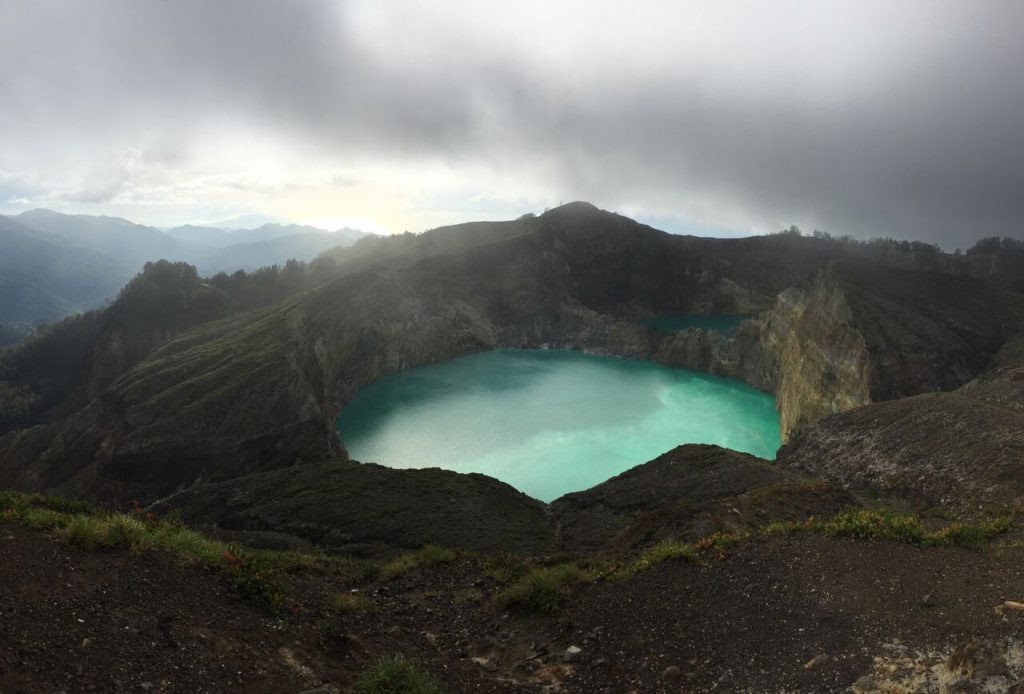
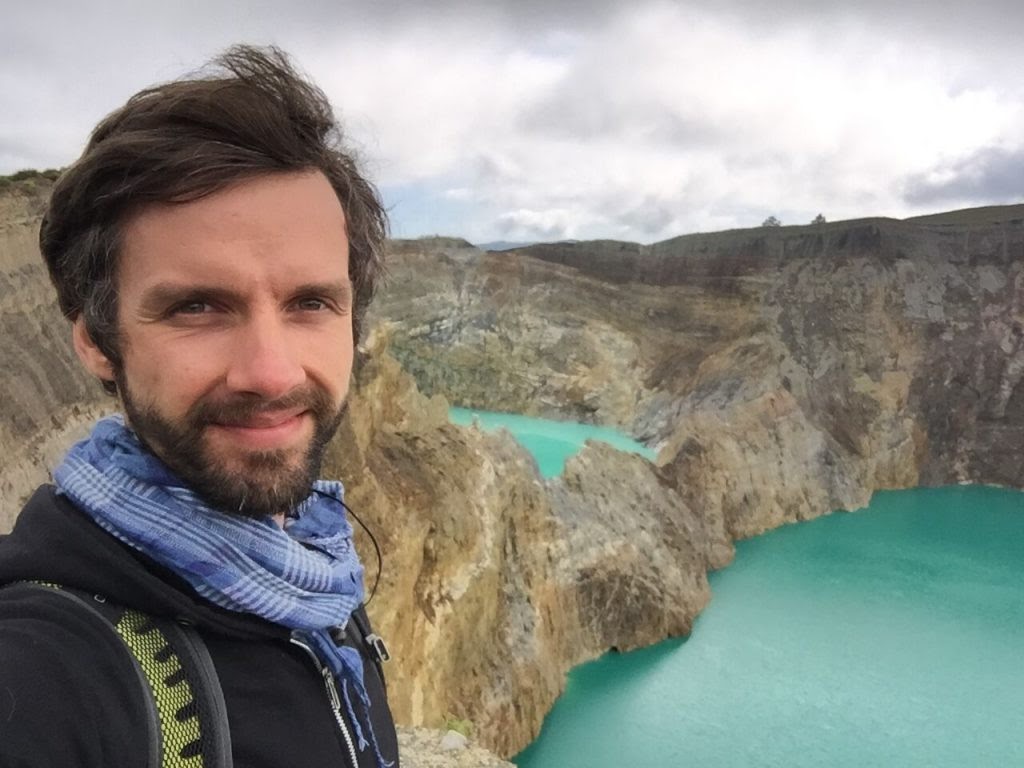
As for my trip to the village of Wae Rebo, after three hours of waiting, the water finally began to slowly retreat. At some point, the situation calmed down enough for a group of 10 Indonesians to remove the previously inaccessible tree from blocking the road. 5 minutes later we were on our way, and I managed to get to my destination before 9 p.m. A simple dinner (rice, green vegetables, eggs and fermented soybeans) tasted exceptionally good, and the ultimate austerity of my room did not bother me at all. The fact that I didn't have to spend the night trapped in a tight truck in the middle of a dark forest was enough to make me happy. The next morning I set off on a long and tiring trek to the village of Wae Rebo (with the intention of spending the night there), but that's a story for another article.
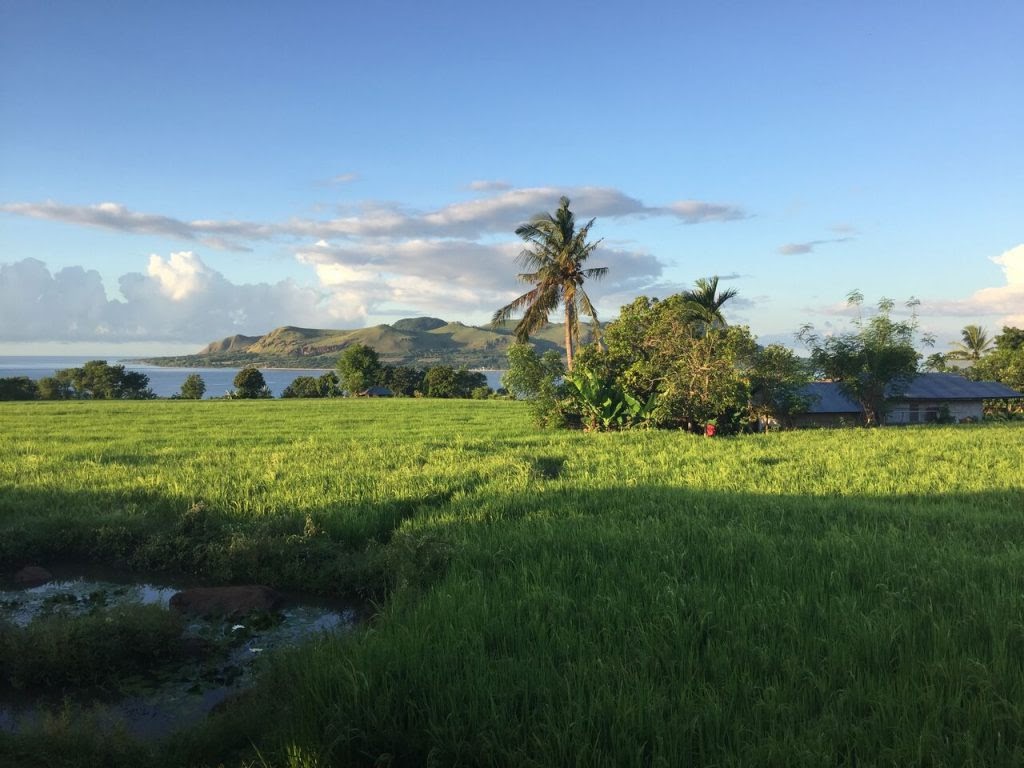
I hope that the experiences I described here will be an inspiration for you to look for your own space of choice whenever you need it.
If you think only travelling on your own can teach you a lesson of acceptance, you couldn’t be more wrong. Even for those of us who lead the most peaceful and orderly life, there are situations every day that put our ability of accepting what reality brings to a test. From a late bus, through a partner who does not meet our expectations, to the dish we ordered that turned out to taste worse than we expected.
Remember that you have access to your space for choice every step of the way. Look into it as often as possible and you will experience more emotional freedom every day.
This is my first article typed on a smartphone. I consider that a kind of achievement. I didn’t bring my computer with me on this trip, which meant 3 weeks without the device I can hardly live without when I’m at home. It's great to be free from attachments!
